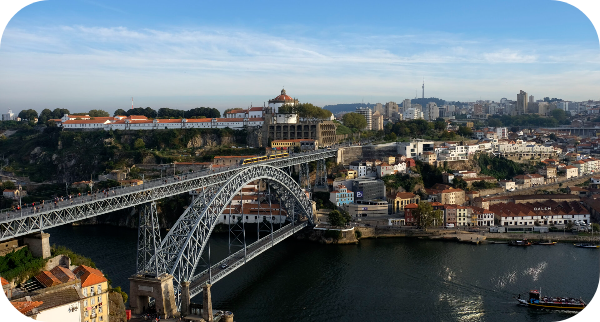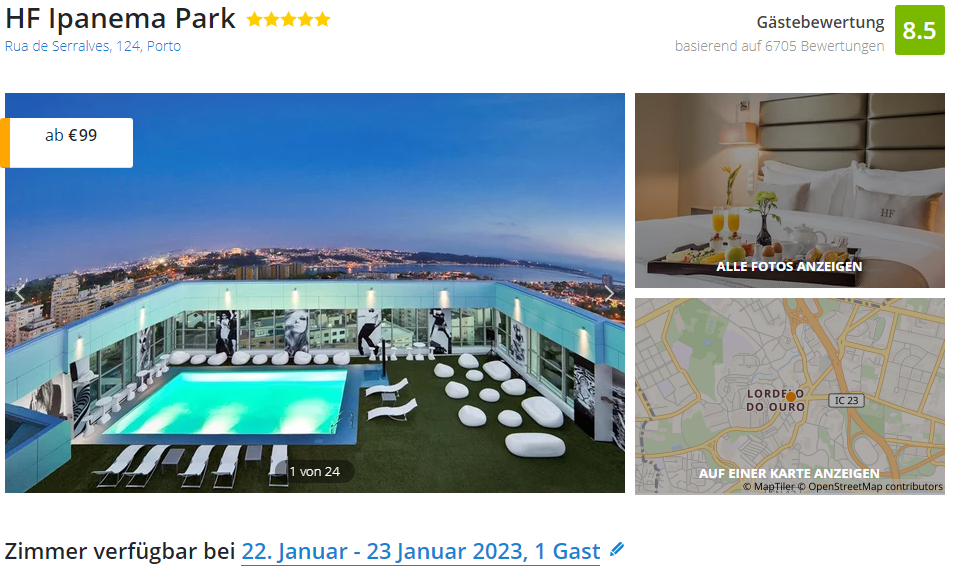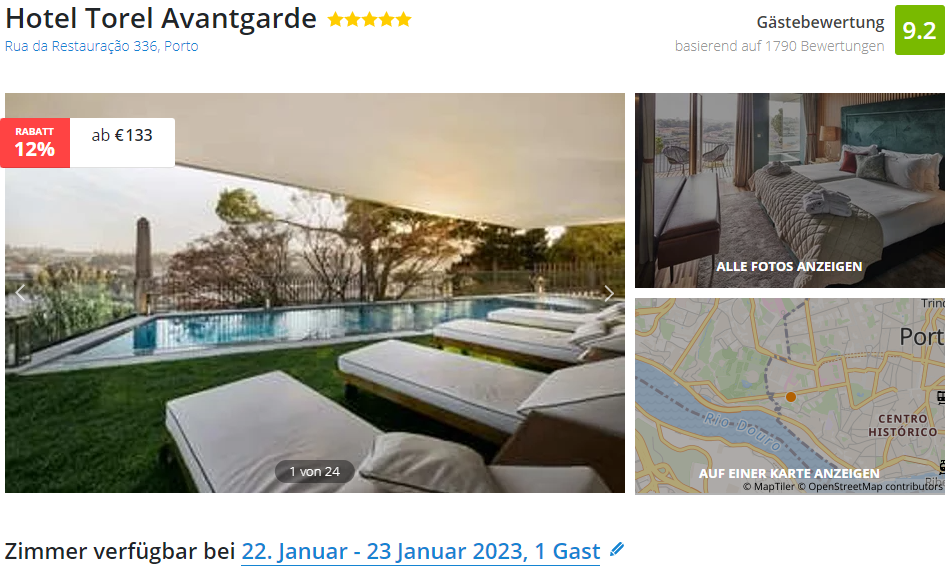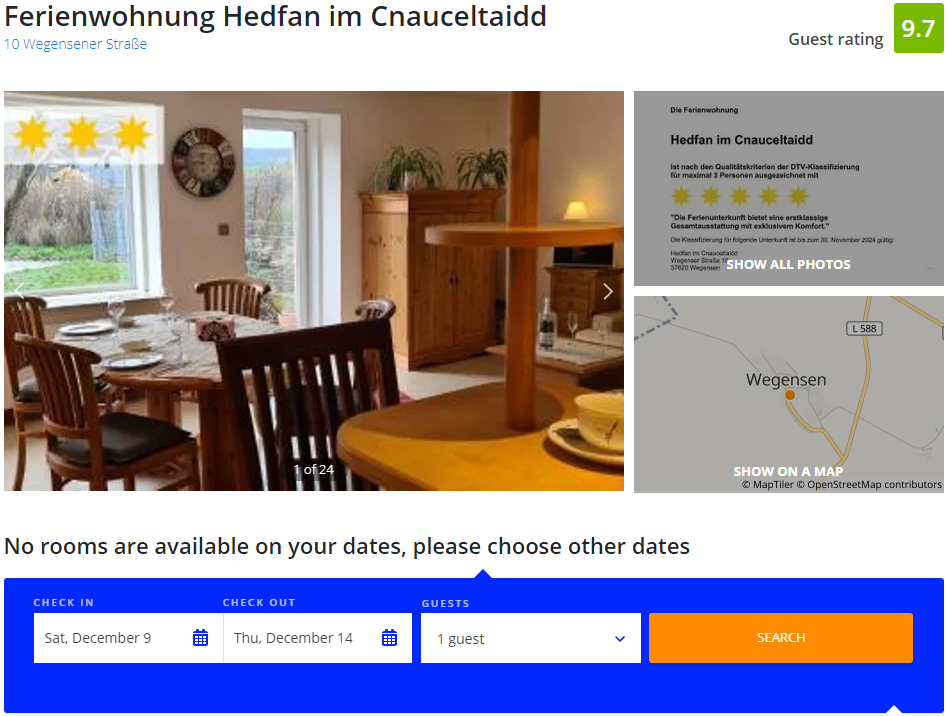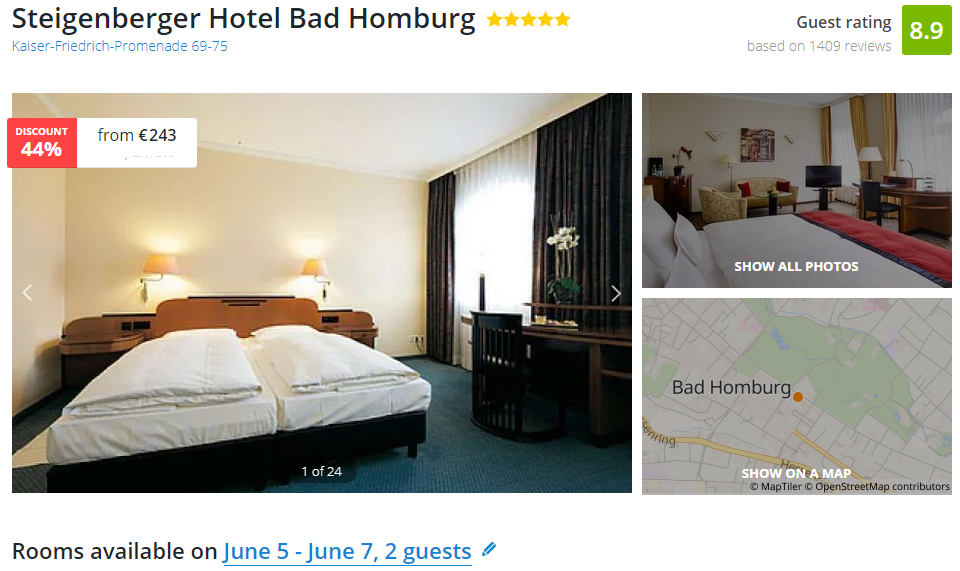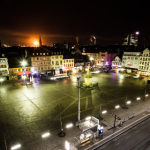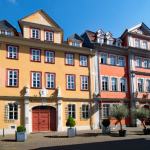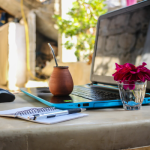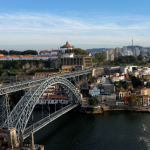Click Here for Cheap Flights and Accommodation.
If you want to see all of Portugal and sample its culture, though, you’ll need some serious planning skills! Here are a few tips for creating the perfect Portugal travel trip:
What to Expect on Your Portugal Travel Trip.
Portugal is a stunning country with much to offer tourists. From its ancient history and castles to its stunning coastline and beaches, there are plenty of things to see and do in Portugal. The country is also well known for its stunning landscapes, including the steep-sided mountain ranges that make up the backbone of the country, as well as the numerous rivers that run through it.
In addition to its scenic beauty, Portugal offers a wealth of cultural attractions. From its independent villages to its vibrant cities, Portugal has something for everyone who wants to explore it. If you're looking for some culture shock, however, be warned: Portugal can be quite dense with traffic and there's little space to relax once you've arrived.
What to Do in Portugal
If you're looking for an easygoing vacation destination where you can enjoy all the traditional Portuguese pleasures like wine walks and seafood feasts, then Lisbon should be your first stop. With centuries of history behind it, Lisbon is one of Europe's most historic cities and boasts some of the world's most impressive architecture – from Gothic cathedrals to Renaissance palazzos – making it a must-see destination for any traveler interested in exploring Medieval Europe."
Portugal Travel Tips.
Before traveling to Portugal, it’s important to know the basics. In order to get a good sense of the culture and climate, start with a stroll through the city centers. Lisbon and Porto are two of the most popular destinations in Portugal, and both are home to world-renowned architecture and landmarks.
Stay aware of Portuguese currency exchange rates when planning your travels, as they can be quite different from those in your home country.
In addition to learning about Portuguese culture and economy, you should also explore its colonial history – it’s stunning! Take a few hours away from your trip to wander through some of Lisbon’s older neighborhoods or visit the Mafra Fortress – once considered one of Europe’s largest slave markets.
Finally, make use of Portuguese language learning resources available on websites like EspanolPodio or LinguePortugal. These platforms can provide you with easy access to common Portuguese phrases and words without having to leave the comfort of your home. By using these tools, you can enjoy Portugal without breaking the bank!
Portugal Travel Tips for Families.
Family travel is a great way to spend some time together and experience Portugal. However, it can be difficult to find the right Portugal travel deals. To make things easier, consider using family activities booking websites like TripAdvisor or FamilyHolidayTravel.com. Once you have a good idea of what you’re looking for, use these sites to find Portugal travel deals that are right for your family.
Use the Right Sites to Find Portugal Travel Deals.
Another way to save on your travels is by using the right sites to find Portugal travel deals. By using online search engines like Google or Yahoo, you can quickly and easily locate deals on Portugal trips that are perfect for your family. You can also check out popular travel blogs and social media platforms like Facebook and Twitter for updates on new Portugal trip deals.
Get a good Portugal Travel Planner.
A final way to save money while planning your trip is by getting a good Portugal travel planner from a reputable source. A good planner will help you create an efficient Portugal travel schedule that suits your needs and budget, as well as provide invaluable tips for navigating the country with ease and comfort. By following our easy guide, you’ll be able to create an effective Portuguese travel itinerary that is within your means!
Conclusion
Portugal is a beautiful country that children and adults alike will enjoy. The highlights of the country include its stunning scenery, delicious food, and warm people. If you're looking for an amazing Portugal travel trip, be sure to familiarize yourself with the basics first - like knowing the Portuguese language and how to exchange currency - before planning your trip! Use Portuguese language learning resources, as well as Portugal, travel deals websites to get the best deals on your stay. Finally, make sure you have a good Portugal travel planner in hand so you can avoid any roadblocks!
Click Here for Cheap Flights and Accommodation.
learn all about Portugals history and culture
Introduction: Portugals are a fascinating people. They’re known for their beautiful language, their unique culture, and—most importantly—their love of food. If you want to learn more about Portugals history and culture, it’s important to understand their story. You can do this by reading books, watching short videos, or even visiting a Portuguese-speaking country. Whatever form of learning takes for you, make sure it’s thorough and helpful.
Portugals History.
1. Portugals Origins
2. The Age of Exploration
3. The Portuguese Empire in the New World
4. The War for Brazil
5. Portugal in the 21st Century
1. Portugals Origins
Portugal was founded in the 6th century BCE by the sons of Iberian parents. The kingdom of Portugal emerged from the unification of several smaller kingdoms during the Middle Ages. By 1500 CE, Portugal had become an empire with a strong military and political presence in much of Europe and Asia. Portuguese colonialism led to a number of social, economic, and cultural changes in many parts of the world.
2. The Age of Exploration
Portugal was one of the first European countries to exploit new global markets for goods and services after arriving in theNew World. In 1497, Manuel I became King Of Portugal after overthrowing his father’s regime. His rule marked a watershed moment in Portuguese history as he began a process that would lead to modernization and growth within Portuguese society. Manuel I also laid the groundwork for Portugal’s relationship with Spain, which would continue until 1568 when Spain conquered Portugal colonies in North America and South America.
3. The Portuguese Empire in the New World
The expansion of Spanish power throughout Latin America led to a conflict between Spain and Portugal over control over these territories. France became involved in this conflict, leading to French involvement on both sides until 1580 CE when Spain finally won its war against France and regained control over all its former conquests including Brazil (the first successful English conquest of Brazil).
4. The War for Brazil
In 1555, Emperor Charles V ordered Henry III of England to invade Portugal because he felt that Henry III was losing power at home due to his popularity among Portuguese Nobility thanks to his successful Crusade Against Spanish Armada (1580–1588). However, Henry III successfully resisted CharlesV’s attempt to conquer Portugal while fighting on more than one battlefield throughout Europe including Muscovy (Russia) where he was eventually victorious (see Battle For Russia). This victory helped solidify Henry III’s position as ruler of England while also strengthening English-Portuguese relations which would last until 1727 CE when Great Britain acquired sovereignty over both countries following their Hybrid Union Treaty.(see Treaty Of Tordesillas)
5. Portugal in the 21st Century
While criticism remains common about some aspects of Portuguese governance—such as its high taxes—most people view Lisbon as an excellent place to live, work, learn, or travel because it has strong infrastructure and great public transportation options.(see Why Lisbon is So Good To Travel To)
The Portuguese Empire.
The Portuguese Empire was a vast and powerful empire that stretched from India to Brazil and Magellan Strait. The dynasty that ruled the empire was founded by King Manuel I of Portugal in 1495. Manuel I was followed by his two sons, John II and Ferdinand III. John II died in 1521, after a reign of only six years, and John III became the first emperor of Portugal.
In 1580, Henry IV of France invaded Portugal and successfully captured Lisbon. In 1588, Henry IV appointed Ferdinando de Albuquerque as governor to lead an occupation of Goa (the then Portuguese colony on the Indian subcontinent). The Portuguese were forced to surrender Goa in 1599 and return it to France.
After the French victory at the Battle of Alcácer Queridas in 1610, Ferdinand III made an unsuccessful attempt to regain control over Goa through negotiations with Spain. In 1614, he successfully besieged Madrid but surrendered after a three-week fighting campaign. Ferdinand III was executed by order of King James I of England in 1620. After his death, his two sons succeeded him as joint successors to the throne of Portugal.
The Portuguese Empire had a strong cultural influence on many parts of the world and left a highly developed legal system and infrastructure behind it. Portugal also played an important role in European diplomacy during its time as a superpower.
The Portuguese Language.
The Portuguese language is spoken by about 20 million people in Brazil, Portugal, Goa, and other Overseas Territories. Portuguese is the official language of Brazil, Portugal, Goa and some of the African countries that are part of the Portuguese Empire. Portuguese is also spoken in a small number of Caribbean islands.
In addition to its use in formal writing and communication, Portuguese is also widely used as a second or informal language within the Portuguese community.
The following sections provide information on the history and culture of Portugal.
The Portuguese people.
Portugal is a country located in Western Europe. The name Portugal comes from the Latin portuguese, which means "to load." The Portuguese language was brought to Brazil in the 14th century by Portuguese traders. After centuries of exploration, the Portuguese arrived at the Cape of Good Hope in Africa in 1497 and founded a colony, Brazil. In 1640, the Portuguese crowns merged to form the United Kingdom of Portugal, Brazil and Algarve. From then on, Portugal was ruled by a series of monarchs who were not related to one another. In 1910, during World War I, Portugal joined World War I on the side of Germany and Austria-Hungary. After victory in World War I, the Treaty of Trianon restored independence for Belgium, Czechoslovakia and Romania. With respect to its people, Portuguese culture is known for its polite mannerisms and its love for good food.
The Portuguese Economy.
In its early years, Portugal was a colony of Spain. The Portuguese minted their own currency, the real, and traded with other countries on a commercial basis. However, when Portugal became an independent country in 1580, it reverted to Spanish currency. The Portuguese Monetary System evolved from the system used by Spain at that time. In order to manage the money supply, the Portuguese government introduced a gold standard in 1822. This system allowed for limited trade between Portugal and other countries but also helped to ensure that Portugal's resources were used efficiently.
The Portuguese Trade System.
The Portuguese trade system was based on bilateral treaties between Portugal and its surrounding countries. Transactions were conducted through intermediaries such as the Company of Indies (Portugal's predecessor to the modern company). At its peak in the 16th century, the Company had annual sales totaling some $14 million dollars!
The Portuguese Heritage.
Portugal is a country located in the southern hemisphere, on the Iberian Peninsula. It shares borders with Spain to the north and northwest, Portugal’s former African colonies to the east and southeast, and Brazil to the south. The official language of Portugal is Portuguese, but there are also numerous languages spoken in Portugal.
The Portuguese culture is rich in history and culture. The country has been ruled by different empires for centuries, and its various cultures have had a significant impact on each other. Many of Portugal’s most famous landmarks – such as Tomar Fortress and Lisbon – date back to its medieval period. Today, the Portuguese government still interacts with many of its former colonies, letting them continue their own customs and traditions while also sharing some key aspects of Portuguese life.
The Portuguese Place in the World.
Portugal is a country that has had a significant impact on the world. It is one of the few countries in the European Union to have official diplomatic relations with both China and Cuba, and it also has formal ties with India, Brazil, and Argentina. Portugal has also been a leading player in both the world economy and diplomacy.
The Portuguese Empire.
The Portuguese Empire was founded in 1497, when King João II of Portugal awarded the merger of several independent kingdoms into a single kingdom. The first Portuguese colony was set up in India in 1498, and by 1512, Portugal had established a extensive empire in Africa, Brazil, and the Americas.
In 1566, following the death of King Sebastian III of Portugal, his two sons divided the country between them; Prince Henry (later Henry II) kept Portugal’s African colonies while Prince Manuel succeeded him as king of Portugal. However, the Portuguese Empire experienced a series of setbacks during its first hundred years: from 1578 to 1581, for instance, there were devastating earthquakes that destroyed Lisbon; from 1595 to 1640 there was a civil war between Prince Manuel’s main rivals for the throne; and from 1638 to 1639 an English fleet penetrated Brazilian waters and sacked Salvador Fortress on September 3rd.
Nonetheless, throughout these difficult times Portuguese colonists continued to arrive in large numbers and expand their empire until it reached its peak under Maximilian I (the last emperor of Brazil) in 1815.
The Portuguese Empire was divided in 1566.
Following the death of King Sebastian III of Portugal, his two sons divided the country among them; Prince Henry (later Henry II) kept Portugal’s African colonies while Prince Manuel succeeded him as king of Portugal. However, during these difficult times Portuguese colonists continued to arrive in large numbers and expand their empire until it reached its peak under Maximilian I (the last emperor of Brazil).
Prince Manuel unsuccessfully attempted to re-establish control over Africa after his father’s death in 1640 but this led to further splits within the empire with different branches continuing to rule different parts of Africa. Consequently, even though Maximilian I lost all African colonies after his death only three years later—in 1645—Portugal still remains one of only two European empires that has never fully given up its colonial possessions overseas (the other is Russia).
The Portuguese Language.
The Portuguese language was first spoken by the Portuguese people in the area that now includes Portugal.
The Portuguese language was originally a Portuguese dialect.
Conclusion
The Portuguese language and empire have left a lasting legacy on the Portuguese people. The Portuguese Empire was one of the most powerful empires in history, and its influence can be seen all around the world. The Portuguese language is still spoken by a significant number of people, and the Portuguese economy has had a major impact on global trade. In addition, the Portuguese heritage is highly respected worldwide.
-
Leave a comment
Your email address will not be published. Required fields are marked *


